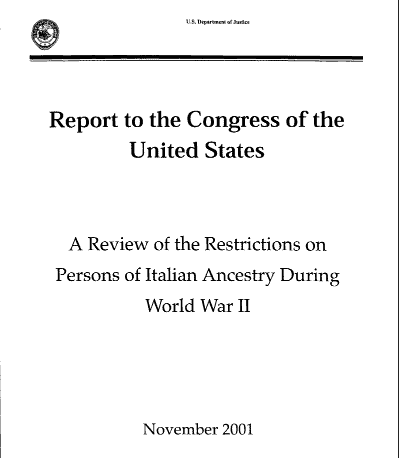by Charles Tocci
My paternal grandfather didn’t want to go to war. Born and raised in Quincy, Massachusetts, Arthur was a 23-year-old high school dropout who had secured a department store job by the time Pearl Harbor was attacked. He thought he was set up for life and going off to war would only jeopardize that. But by January, Arthur had been drafted, after which he was sent to serve as a medic in the Pacific far from the possibility of split loyalties in Europe.
But as difficult as the next five years would be for Arthur, he avoided the fate of thousands of other Italian Americans who were interned, displaced, restricted, or had their property confiscated when the American government classified some as “enemy aliens.” The scope and scale of this repression was detailed in a 2001 report from the Department of Justice, Report to the Congress of the United States: A Review of the Restrictions on Persons of Italian Ancestry During World War II. The report’s mountains of evidence demonstrate how the reactionary fears of a state at war brought all Italian Americans under suspicion and many into indefinite custody.
The intention is not to compare the treatment of Italian Americans during WWII with Japanese Americans, 117,000 of whom were interned in decrepit prison camps for years, or Muslim Americans, who faced government harassment and public disclination in the wake of September 11, 2001. Instead, it is meant to highlight whiteness’s contingent and conditional nature in the United States. The suffering of Italian Americans described in the report should serve as an ethical touchstone and remind us to reach for solidarity with those who suffer similarly today.
